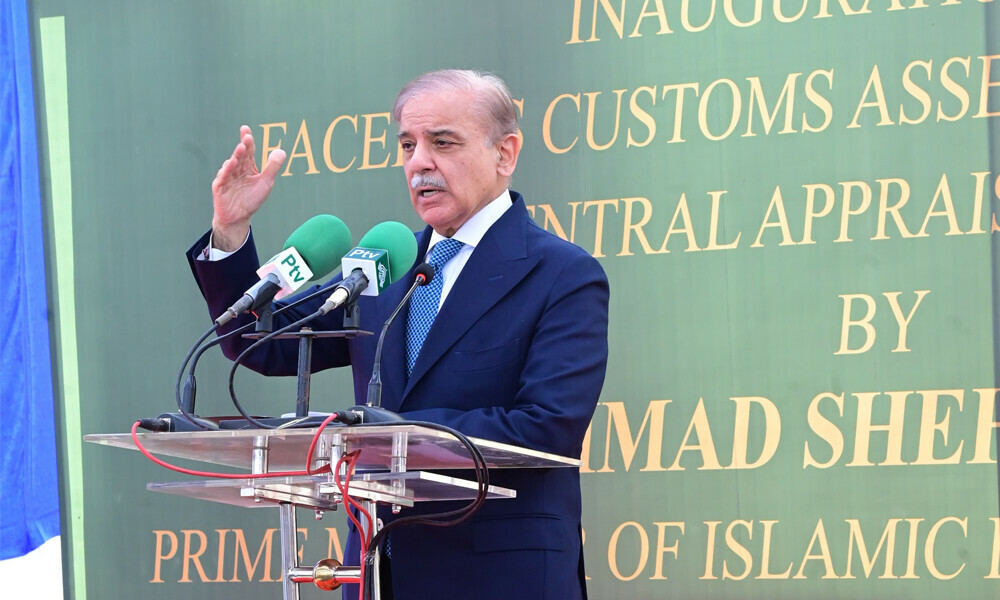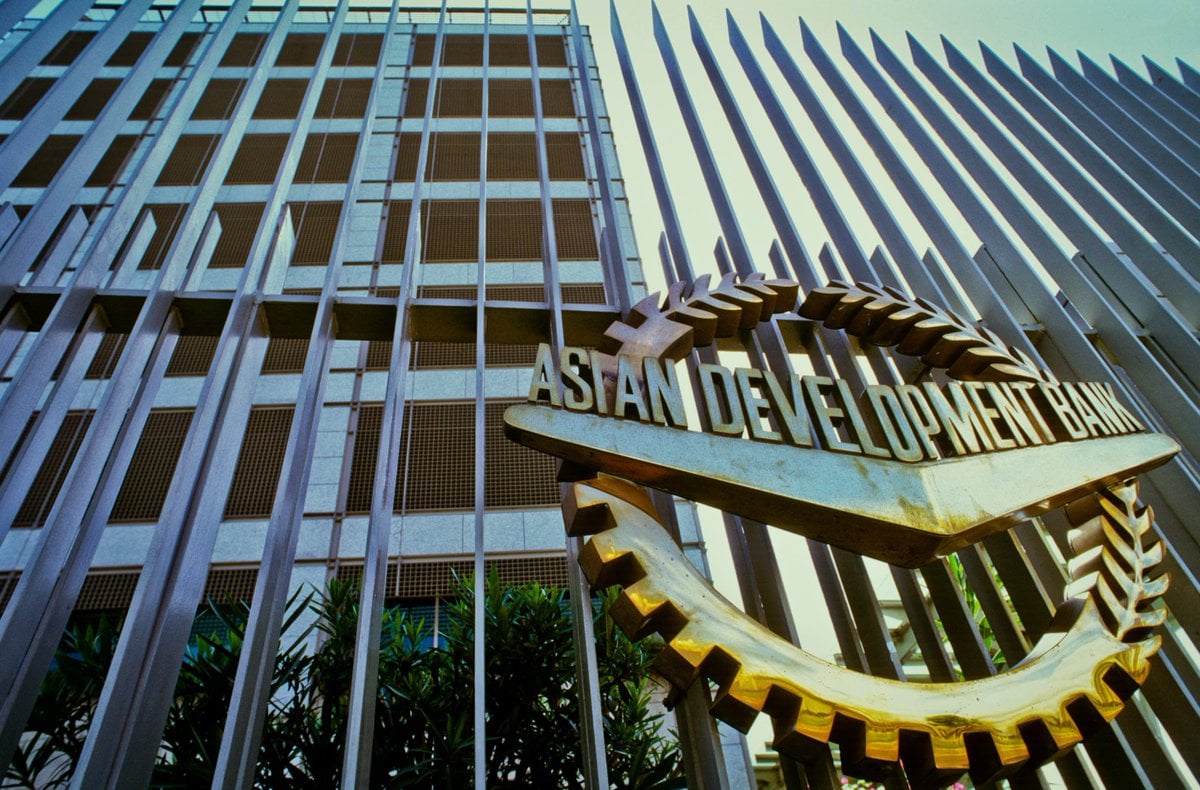PTBP Web Desk
Prime Minister Shehbaz Sharif announced significant strides in Pakistan’s economic landscape while inaugurating the Faceless Customs Assessment System at South Asia Terminals Pakistan (SAPT) in Karachi. The event was part of his day-long visit to the port city and was attended by key government figures including Deputy Prime Minister Ishaq Dar, Federal Minister for Finance and Revenue Senator Muhammad Aurangzeb, Federal Minister for Maritime Affairs Qaiser Ahmed Sheikh, Federal Minister for Information and Broadcasting Attaullah Tarar, and Minister of State for Finance, Revenue, and Power Ali Perez Malik.
Sharif highlighted the positive macroeconomic indicators, pointing out a robust 11% increase in exports and a remarkable 34% surge in IT exports. These figures, he noted, signify a healthy trend in the country’s economic performance. He emphasized the necessity for all stakeholders, including government functionaries, investors, and exporters, to work in synergy to further bolster Pakistan’s economy.
The launch of the Faceless Customs Assessment System was celebrated as a pivotal move towards modernizing customs clearance processes in Pakistan. This system aims at enhancing transparency, reducing corruption, and improving the efficiency of customs operations. “Now, the interaction between importers and customs officials is faceless,” Sharif remarked, appreciating the young officers of the Customs Department for their role in this significant achievement.
The system has already shown promising results. The Prime Minister noted that with the new system in place, the time for Goods Declarations has been drastically reduced to just 10 minutes for single-item consignments, and 15 to 20 minutes for those with multiple items. He also shared that the experimental phase saw the Bill of Entry (BOE) time decrease from 42 hours to just 19 hours, with a goal to further reduce it to 12 hours. This efficiency has led to an 88% approval rating among importers, indicating a high level of satisfaction or “Feel Good Factor.”
Sharif congratulated the Finance Minister, FBR, Karachi Port, and the Customs department for this successful implementation. He suggested a third-party evaluation by IT experts, recommending that Chief Minister Sindh Syed Murad Ali Shah and Governor Sindh Kamran Khan Tessori take the initiative. This would ensure the system’s effectiveness and integrity.
Reflecting on broader reforms, the PM acknowledged the positive outcomes from focusing on FBR reforms over the last nine months. He proposed a rewards system for Customs officials, offering a 10% cash reward on additional revenue recovery, showcasing the government’s commitment to incentivizing diligence and integrity within the department.
Sharif also addressed the pressing issue of electricity prices, stating that reducing the cost to between Rs 15 to 20 per unit is crucial for fostering growth in agriculture and exports. He plans to engage with provincial governments to share this responsibility, aiming for a more sustainable and competitive economic environment.




